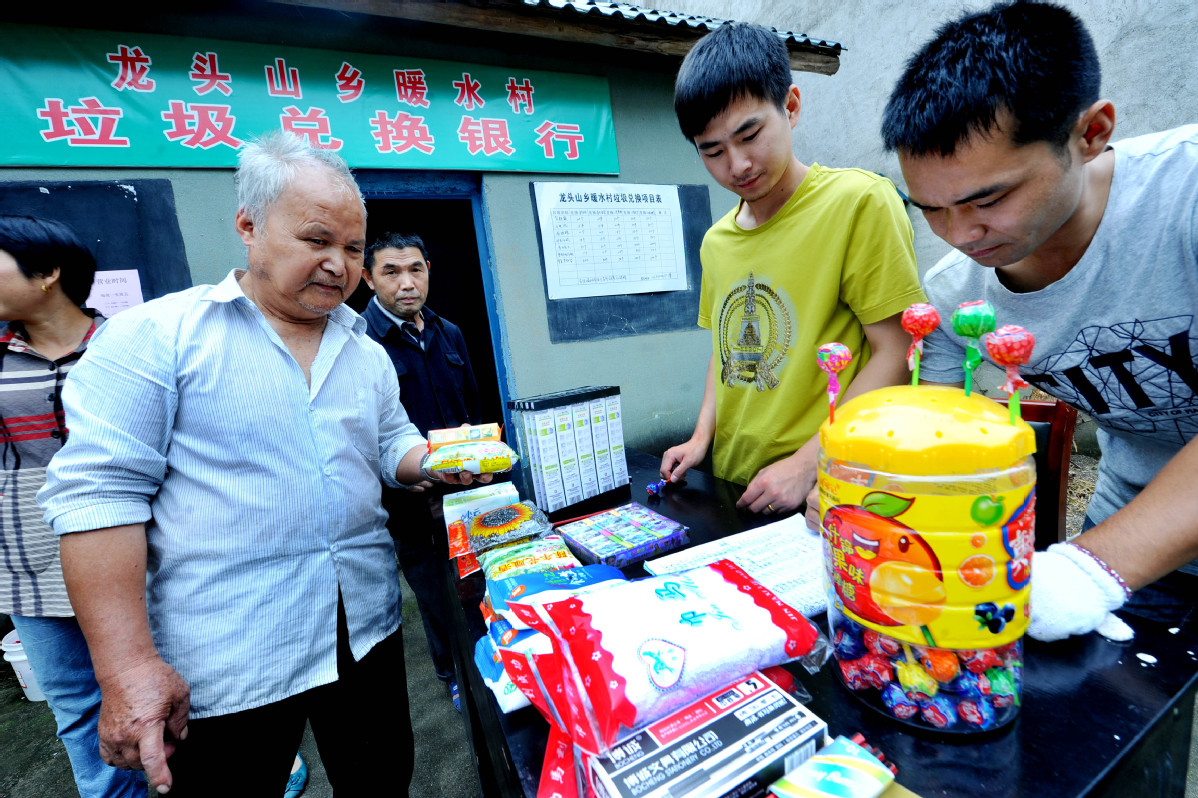Villagers find value in waste and a clean environment
China Daily | Updated: 2019-04-29 09:16

Residents of Nuanshui village carry rubbish to a "waste bank" every day. They are willing to stand in a long line to turn their waste into energy.
Situated in the city of Dexing in East China's Jiangxi province, the remote village opened the waste bank in 2016. The initiative encouraged villagers to collect garbage and raised environmental awareness.
Back then household waste could be easily spotted in Nuanshui. Villagers used to throw plastic bags in the river. However, the village environment has seen dramatic changes after the two-year operation of the waste bank.
In the eyes of locals, worthless plastic bags, used batteries, cans and cigarette butts are no longer randomly discarded. In the bank, they can dispose of 80 plastic bags, or 40 used batteries, or 200 cigarette ends in exchange for a bar of soap.
As of the end of 2018, the waste bank in Nuanshui had received a total of 30 metric tons of trash, while spending on items for exchange amounted to 85,000 yuan ($12,600).
"The government used to pour more than 100,000 yuan into waste disposal every year in one village. But the littering could not be rooted out," said Tang Yongfeng, head of the agriculture and rural affairs administration of the city of Dexing.
Villages in the city have more than 100 waste banks providing trash-exchange-goods services. Waste disposal fees for each village have been cut to around 20,000 yuan.
"Waste banks are very popular with the villagers, and have seen very good results," Tang said.
He said rubbish collected in rural areas would finally be dealt with in a manner similar to the waste-to-energy program in the cities, converting waste into electricity and heat.
Curbing environmental pollution in rural areas has been a major concern, not just in China but globally. China has been making efforts to improve the rural environment.
According to the latest No 1 Central Document, released by central authorities, China will continue to promote rural development and improve the rural living environment and public services. The living environment in rural areas is expected to see remarkable improvement by 2020.
In Nanshan village in the city of Gao'an, also in Jiangxi, it is rare to see garbage, and the classified dustbins with bright colors are eye-catching.
"I saw classified dustbins only in the cities, as well as cleaners. We have our own in the village now," said Gu Guangrong, a village cleaner, adding that the environment of the village has improved a lot in recent years.
In Jiangxi, rural communities in 44 counties have started waste treatment. Sewage treatment facilities have been constructed in more than 2,000 villages. More than 5.7 million rural families have installed flush toilets, accounting for 74 percent of entire rural households in the province.
Despite many achievements, China's rural areas have seen relatively slow progress in sanitation, and there is scope for improvement, according to Xu Guangjian of Remin University.
To catch up with cities, China has been promoting sewage treatment and improving sanitation facilities in the vast rural areas. So far, at least 20 provinces and regions have rolled out a series of policies to treat waste water and classify garbage.
Xinhua
























